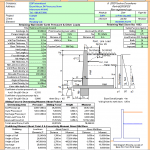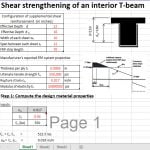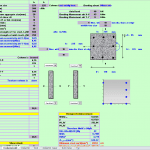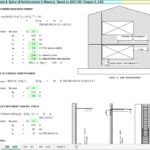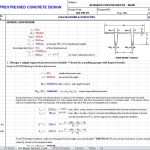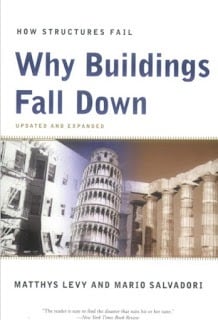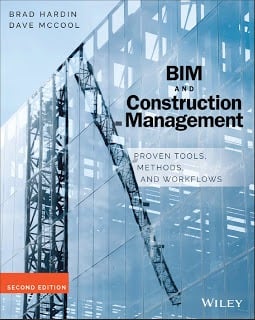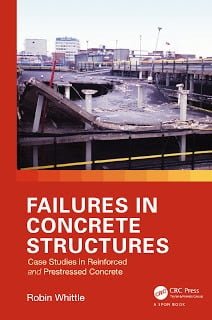
Failures in Concrete Structures
8 December 2017Failures in Concrete Structures
Many failures, when investigated, have been found to arise from a combination of causes.
The traditional design sequence starts with the sizing of members.
These are determined from the loading (permanent and variable actions) with reference to bending moments and, for beams, shear forces.
The reinforcement is then calculated to cater for these forces.
Much of the reinforcement is detailed only after completion of the contract documents.
Later, if problems are found in fitting the required reinforcement into an element or joint, it is difficult to change the size of section on which the architect and services engineers agreed.
Many such problems could have been avoided by producing sketches early on to show how the joint details could work before sizes were finalised.
This book is a personal selection of incidents that have occurred related to reinforced and prestressed concrete structures.
Not all have led to failures and some of the mistakes were discovered at the design stage.
Each incident required some form of remedial action to ensure safety of the structure.
Some of the incidents were caused by mistakes in design or construction or both.
Some involved collapse of part of the structure, but in such cases the cause was from mor than one unrelated mistake or problem.
A few of the errors and incidents were caused by deliberate intent.
Chapters 1 to 11 describe specific incidents such as structural misunder standing, extrapolation of codes of practice, detailing, poor construction, and other factors.
When a particular incident involved more than one of these causes, it is described in the most relevant section.
Chapters 12 and 13 discuss issues related to procurement and research and development.
[su_button url=”https://drive.google.com/open?id=105HfRaX-HQoBy-MfAQKgYHYBmki2xn0P” size=”7″ center=”yes”] Download Link[/su_button]

